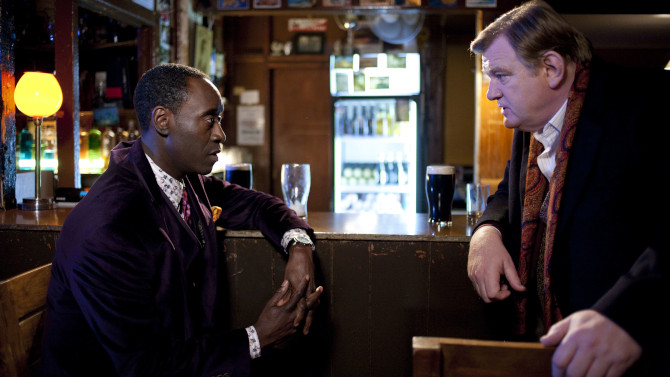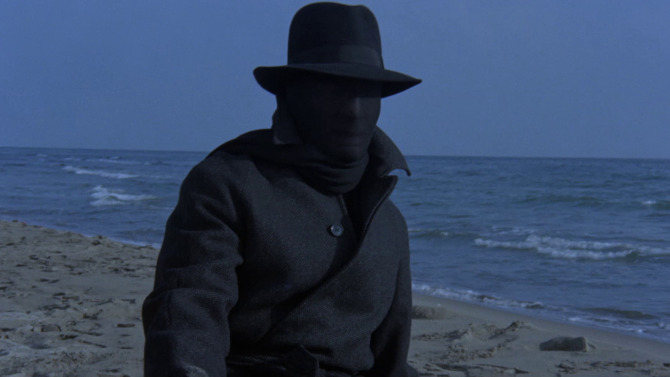
A Lawyer, a Mortician, and a Professor Walk Into a Morgue...
One of the trends of the gialli, when possible, was for the film making team to attract a formerly successful Hollywood star who had aged out of his heyday a bit... think The Pyjama Girl Case who nabbed Ray Milland, The Cat O’Nine Tails starring Karl Malden, or The Killer Is On the Phone featuring Joseph Cotten... and, with today’s example, Farley Granger leading So Sweet, So Dead (1972). Directed by Roberto Bianchi Montero, the feature, which is also known as the less subtle The Slasher ... Is the Sex Maniac! follows a small city detective, Inspector Capuana (a mustached Granger – They Live by Night; Side Street), who has recently moved to a larger locale in southern Italy.
-

What Could Have Been: Red Surf
June 14, 2022Coming off as a low grade imitation of a Steven Seagal style movie... but without the flair, 1989's Red Surf, co-written and directed by H. Gordon Boos, is perhaps most intriguing for featuring George Clooney in one of his first cinematic starring roles, and Gene Simmons as his demented moral compass and kick-ass compatriot (or maybe it should be kiss-ass). Beating Point Break to the surfer storyline by a full two years, Clooney plays former hang ten icon Remar, who, after some knee issues, has decided to get his highs from smuggling and using drugs instead. Surrounded by a team of just as impressive low lifes, including number two Attila (Doug Savant) – funnily enough, ‘hun’ works quite well to describe him
-
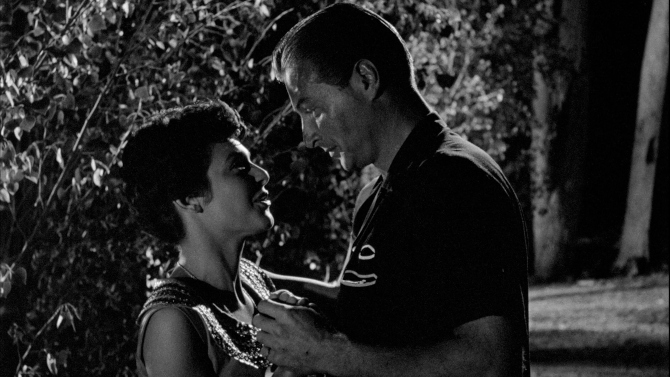
Stocking Stuffer
The Girl in Black StockingsNovember 30, 2021Wow – what a tagline: “One will die tonight! The girl on the loose, the smart secretary... they’re too teasing...too tempting...too easy a target for a crazed killer!”. 1957's The Girl in Black Stockings, coming from famed producer and sometime director Howard W. Koch, is a B budget film noir that really demonstrates its influence as a precursor to the gialli and slasher films that would follow some fifteen or so years later. Nearly entirely set in one location, welcome to the small town of Kanab, Utah... a population of three thousand that houses within it the relaxing Parry Lodge – a perfect place for those looking to escape their stressful lives. Run by a brother and sister, Edmund Parry (Ron Randell) is a clench jawed cynic (likely stemming from the fact he is a quadriplegic), often spouting cheerful lines like, “I’d like to get so drunk I’d look in a mirror and spit in my own face”, while Julia (Marie Windsor – The Killing) is everything to him but wife (but that doesn’t mean she’s not jealous when a woman shows him any attention).
-
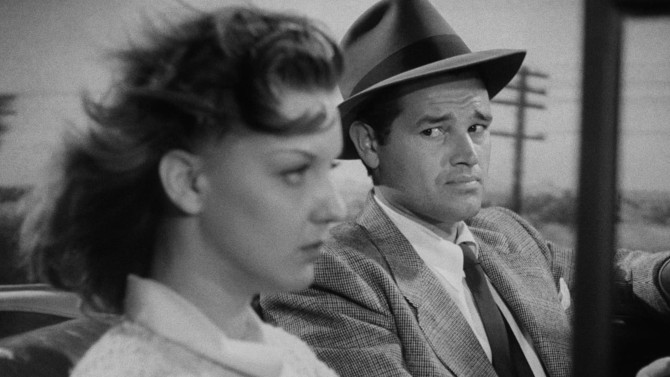
Just Deserts
DetourNovember 12, 2021You know you’ve got a budgetary problem when you find yourself on Poverty Row. For those of you who do not know, this was the slang term used for a group of low budget Hollywood B movie studios that existed in the City of Angels from the 20s to 50s. Transcending these financial constraints to make a quality film noir, director Edgar G. Ulmer used all the proverbial tricks in the book to develop Detour (1945). Told in a most unique way, a quasi-soliloquy narration transitions to nightmarish flashbacks as Al Roberts (Tom Neal) recounts his fatefully nihilistic tale (you might never see a more downtrodden visage). A cynical man, even before his girlfriend (closing in on fiancée), Sue Harvey (Claudia Drake), decides to leave him to make her own breaks in Hollywood, he is the prototypical down on his luck protagonist. It’s not like he doesn’t have a skill – a piano virtuoso, he can only find a job tinkling the ivories at a crummy nightclub in fog strewn NYC (fog was a useful tool for low budget productions that didn’t have the money for sets).
-
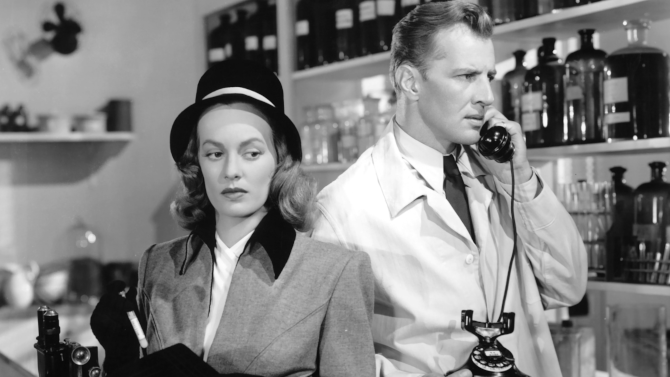
Stranger Danger
Danger SignalNovember 8, 2021A young woman’s cold dead body lays on a bed – an apparent suicide (there is a note); a man taking the wedding ring off her hand, then stealing money from her purse; he hops out of the window with his luggage, tweaking his leg in the process... this is the dark and intoxicating opening to 1945's Danger Signal, directed by Robert Florey. Based upon a novel of the same name by Phyllis Bottome, the above mentioned man is Ronnie Mason (Zachary Scott), he’s as smooth as silk, as silken as velvet, as velvety as velour... in other words, he’s a slick chameleon bluebeard that women should be wary of (but never are).
-
Stand On Guard
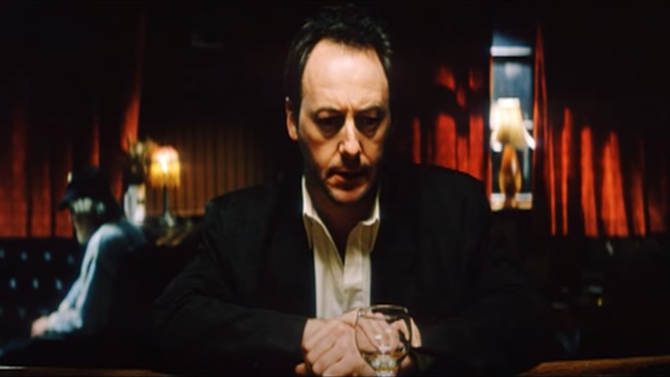 The Second DeathThe GuardMay 18, 2021
The Second DeathThe GuardMay 18, 2021By now, most film fanatics have discovered the works of playwright turned film maker Martin McDonagh, starting with the 2004 short film Six Shooter (it earned him an Oscar), he then went full length with 2008's In Bruges (it quickly became an acclaimed cult classic), next heading Stateside with the rather violent 2012 comedy Seven Psychopaths (again, garnering much praise), only for his fourth, and to date, final effort, 2017's Three Billboards Outside Ebbing, Missouri, to earn multiple Academy Award nominations (including two wins. . . while many believed it should have won Best Picture as well). While we wait for his still untitled next feature (which is currently in pre-production), perhaps some of you have yet to discover his very talented brother, John Michael McDonagh. Today, I’ll introduce you to the short film that started it all, as well as the full length feature that blossomed out of it.
-
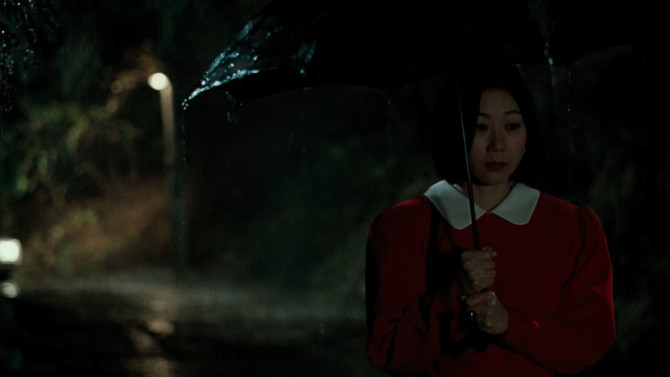
Don’t Lose Your Train of Thought
Memories of MurderMay 10, 2021Only Bong Joon Ho’s second movie, 2003's Memories of Murder already shows the masterful brush strokes of a confident young artist, writing a thought provoking, multi-layered script (based upon a series of real life murders as well as Alan Moore’s graphic novel “From Hell”) that is paired with a mesmeric visual onscreen presence. Set in a rural town in South Korea, this is a location that has been left behind. Usually a peaceful, quiet place (except when the trains pass through), October 1986 has brought with it the dead body of a young woman – both raped and murdered. Riots and protests routinely pop up in this fractured time and setting.

